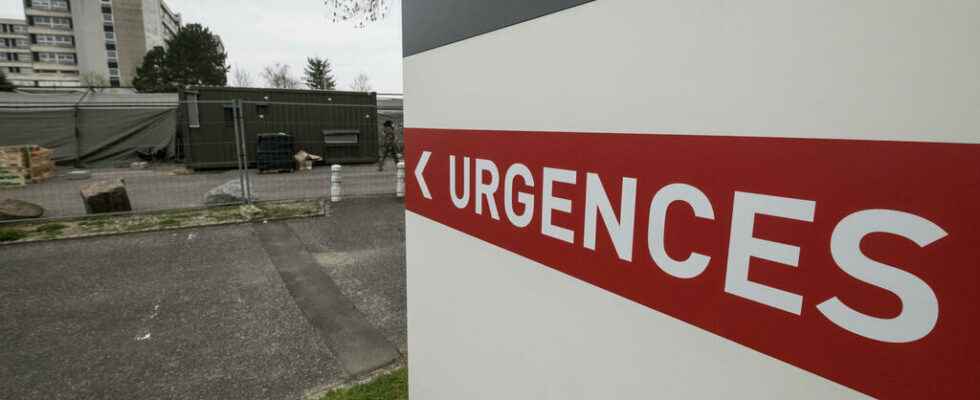Many emergency services are on the verge of breaking down. Their access has been restricted or will be restricted in 120 hospitals, for lack of caregivers in sufficient numbers, according to the count of Samu-Urgences de France. Among the establishments in the turmoil: the hospital of Dreux, in Eure-et-Loir. Recently, in protest against their working conditions and the lack of personnel, the majority of emergency paramedics were off work, until the management committed to recruiting.
Here as elsewhere, emergencies are on the front line, the point of convergence of difficulties, between problems of access to care for the population and lack of hospitalization places. Philippe, in his fifties, was born in Dreux. He has lived there all his life, and in recent years he has seen medical desertification gain ground.
” I no longer have a doctor. He is dead. When I look for one they say they are already full. When they retire, they are not replaced. I knew at a time when even in working-class neighborhoods (I come from a working-class neighborhood), there was at least one or two doctors. Today, it is a rare commodity. When I need to see a doctor, I go to the emergency room, to get a diagnosis or be reassured “, he says.
20,000 more patients per year in ten years
More and more residents, like Philippe, are going to the hospital emergency room for lack of city doctors. But this is not the only cause of emergency room overcrowding. There is also, downstream, the recurring difficulty in finding a place in hospital for patients who need it. Not enough beds, because not enough staff due to overly constrained budgets, believes Thierry Buquet, CGT union representative at the Dreux hospital, and stretcher-bearer by trade. According to him, the situation in the emergency room has been complicated for several years:
” 10 years ago, we had 35,000 admissions per year. Today, we are around 55,000, and the workforce has increased, but very slightly, and not in line with the increase in activity. »
“ This is why there is a difficulty for the agents in taking charge. When I worked in the emergency room, at the beginning, it is clear that we did not see stretchers in the corridors. The emergency room flow had nothing to do with what we see today. And we had the necessary beds to accommodate people upstairs. They did not stagnate in the emergency room “, he explains.
” These conditions make us inhuman »
Consequence of emergency overcrowding: suffering staff, such as Clem, nursing assistant, and Lucie, nurse. ” Physically, I am exhausted, and then fed up with not being able to take care of patients properly. That’s what bothers me the most. We are not here putting things on the shelves, we take care of the human. I didn’t do this job to be inhuman and abusive.
– And you feel like you are sometimes ?
– Yes. We can no longer take care of people as we should. Humanly, we can no longer speak with them, we can no longer meet their primary needs. They are worried, they want to talk to their families, but families are not allowed to return since the Covid. We don’t have time, either to give them something to drink, or to let them communicate with their family, or even sometimes to take them to the toilet. There, we no longer meet the basic, almost vital needs of people. Personally, I’m not well at all. I admit that I have this job in my gut, but I didn’t do it to be inhuman and some patients tell us that. These conditions make us inhuman, and it’s true “, they confide.
After a social movement, where access to the emergency room of the Dreux hospital had to be restricted, the management undertook to recruit paramedics. Just find them and keep them. A challenge, because the public hospital attracts less and less caregivers.
